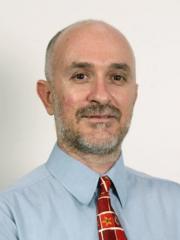Emeritus Professor Joe Diniz da Costa

Joe da Costa is Professor of Chemical Engineering at the University of Queensland, Brisbane, Australia. He has over 20 years working experience in industrial, consultancy, academic and government advisory roles in Brazil, England and Australia. Joe’s publications are generally focused on engineering and materials, although cited over 2000 times often in interdisciplinary publications. His h-index is 25.
Joe has establish an internationally respected program of work which focused on pursuing novel technological solutions for the issues facing our contemporary society, with high levels of innovation as evidenced by industry collaboration, funding and uptake, and high levels of international connectivity. Currently he is an Editorial Board Member of Nature’s open source journal Scientific Reports. In addition, he held a prominent leadership position as a member of the Independent Scientific Panel advising the Queensland Government on underground coal gasification, and a member of the International Panel of Experts assessing the Brazilian programs of Centres of Excellence. Since 2002 Joe has been successful in obtaining more than $35M in research funding from national and international agencies, and industry. He has delivered over 10 international keynote/plenary presentations and has had strong international and industrial collaboration with Germany, France, Spain, Holland, Denmark, UK, Saudi Arabia, China, USA and Brazil. He has been recipient of 4 awards since 2006, including two research excellence awards.
Research
Joe’s research work is inspired by functional materials to design innovative inorganic membranes for gas, hydrocarbon and biofuels separation, desalination, and adsorbents materials. Functional materials are designed from molecular level based on silica and silica hybrid precursors, metal oxides and structured perovskites, clays and hydrotalcites, surfactants and organic templates, graphene and graphene oxides, and metal organic frameworks among other materials. These materials are systematically combined to study the synergistic effects of molecular sieving or molecular shaping properties, sorption capacity, ordered crystal properties and catalytic activity. The transport phenomena of these functional materials are comprehensively investigated to develop molecular or ionic transport models.
Teaching and learning
Joe has been teaching at UQ since 1997, primarily fourth year Chemical and Environmental Engineering. His major teaching covers courses in (i) environmental risk assessment, and (ii) energy systems in sustainable development.
Projects
- Hybrid metal organic framework and silica membranes
- Hybrid functional graphene oxide and silica membranes
- Interfacial Metal Oxide Perovskite materials for oxygen separation
- Carbon molecular sieves for desalination
